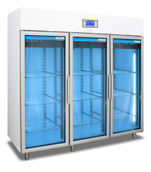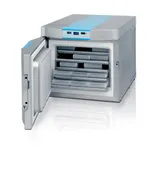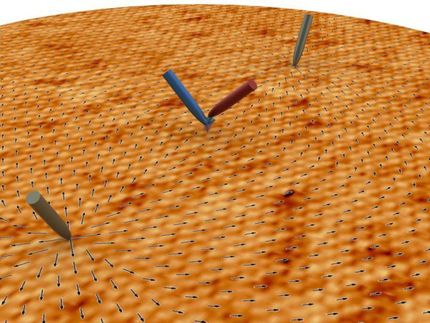Rattling ions limit heat flow in materials used to reduce carbon emissions
A new study published in the journal Nature Materials has found a way to suppress the thermal conductivity in sodium cobaltate so that it can be used to harvest waste energy.
Led by scientists at Royal Holloway University, the team conducted a series of experiments on crystals of sodium cobaltate grown in the University's Department of Physics. X-ray and neutron scattering experiments were carried out at the European Synchrotron Radiation Facility and in the Institut Laue-Langevin in Grenoble, using the UK's national supercomputer facility HECToR to make their calculations.
They believe their approach can easily be applied to other substances, since they only require tiny crystals and will, therefore, guide the design of the next generation of thermoelectric materials.
"The global target to reduce carbon emissions has brought research into thermoelectric materials centre stage," said Professor Jon Goff from the Department of Physics at Royal Holloway.
"If we can design better thermoelectric materials, we will be able to reduce the energy consumption of cars by converting waste heat in exhausts into electrical power, as well as cooling hot spots on computer chips using solid state refrigerators."
Thermoelectric coolers are also used in air conditioners and in scientific equipment where a rapid response to changes in temperature is required. Energy harvesting is also important in miniaturised electronic devices, including "systems on a chip", and power recovery using this method is useful for any off-grid electricity applications, including in space.
"The development of thermoelectric oxides offers an environmentally clean alternative to current materials that contain elements that are harmful, such as lead, bismuth or antimony, or those that are in limited supply, such as tellurium," added Professor Goff.
Topics
Organizations
Other news from the department science
These products might interest you

tritec® Chromatographic refrigerators by tritec für Labortechnik und Umweltsimulation
Energy-efficient chromatography refrigerators for precise temperature control
Safe storage of your HPLC systems at -5 °C to 20 °C with modern touchscreen display

B 35 by FRYKA Kältetechnik
Deep freezer for arctic cold - directly on your lab bench
Your samples - ready to hand thanks to decentralized storage and safely cooled at up to - 85 °C

Get the chemical industry in your inbox
By submitting this form you agree that LUMITOS AG will send you the newsletter(s) selected above by email. Your data will not be passed on to third parties. Your data will be stored and processed in accordance with our data protection regulations. LUMITOS may contact you by email for the purpose of advertising or market and opinion surveys. You can revoke your consent at any time without giving reasons to LUMITOS AG, Ernst-Augustin-Str. 2, 12489 Berlin, Germany or by e-mail at revoke@lumitos.com with effect for the future. In addition, each email contains a link to unsubscribe from the corresponding newsletter.




























































